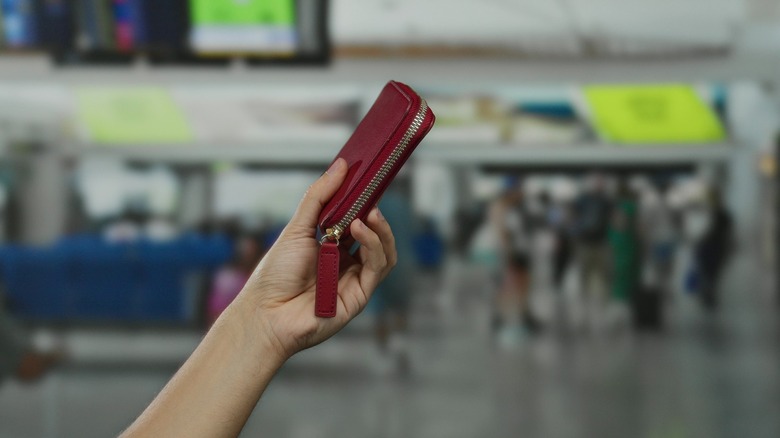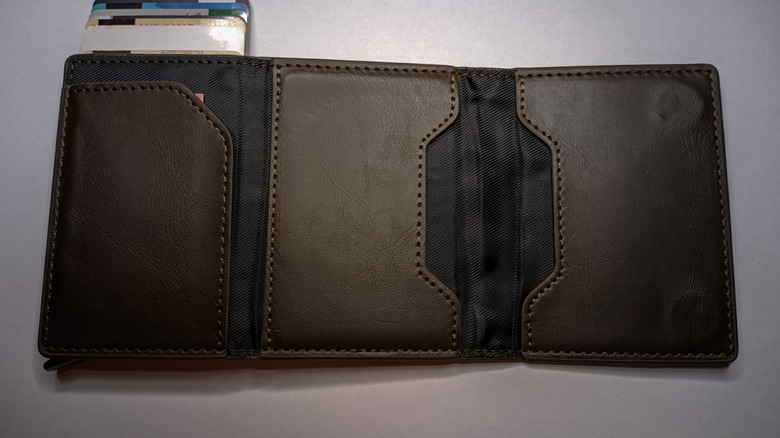Can Your RFID Wallet Go Through TSA?
The main goal of the Transportation Security Administration (TSA) at an airport is to ensure that all flights are safe and hazard-free. As big as planes are, they are still fragile tubes tens of thousands of feet in the air and full of people. The TSA's job is to make sure that only safe items make it through to the cabin — and that includes things that could be potential hazards. That's why many seemingly harmless objects aren't allowed, such as aerosol cans, snow globes, or even dead electronic devices. These items most likely won't cause any harm, but they're not allowed just for the mere fact that they could.
Radio Frequency Identification (or RFID) wallets have special linings that block bad actors using radio waves to read and capture information stored on your cards or passports. You may be wondering if this lining in an RFID wallet would also raise red flags at airport checkpoints. The good news is that RFID protection is simply a thin metallic mesh or foil layer, and TSA screening machines handle it like any other metal in a wallet. It won't interfere with X-rays or security scanners, and it doesn't trigger alarms by itself. Even a titanium Ridge wallet is allowed through security; the only difference is that its solid metal body may set off the walk-through metal detectors if left in your pocket. In that case, TSA will simply ask you to drop it in a bin and let the X-ray do its job.
When a wallet becomes a problem at security
Feel free to buy the best, most secure RFID-blocking wallets with no TSA fears; by themselves, these wallets aren't an issue for airport security. However, what is inside them could put you in some trouble or, at least, cause delays. Sharp objects such as knives, box cutters, or multi-tools, like Swiss army knives, with blades are explicitly prohibited in carry-on items, even if concealed within a wallet or pouch. TSA agents maintain full discretion to disallow any carry-on item they suspect poses a security risk, especially those with potential cutting edges.
Another frequently overlooked source of confusion is coins. Coins, though harmless, can appear as dense, ambiguous shapes on X-ray monitors. TSA officers may pause to verify what you're carrying is actually coins or some other unusual mass — especially if it's an unfamiliar pattern on screen. While coins are legal, you should expect possible delays if they obscure the contents of your wallet.
And then there's cash. The TSA itself doesn't impose a limit on how much you can carry domestically, but large sums could raise suspicion. Should agents suspect the money is linked to illicit activities, with or without confirmation, they can refer the case to law enforcement. When flying internationally, cash totaling more than $10,000 must be declared to U.S. Customs and Border Protection via a FinCEN form; failure to do so may result in seizure or penalties.

